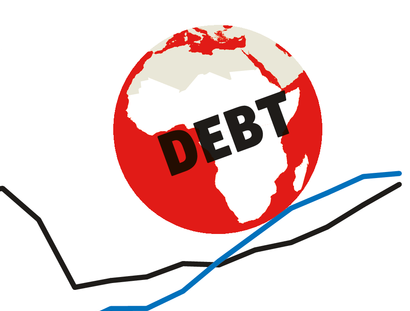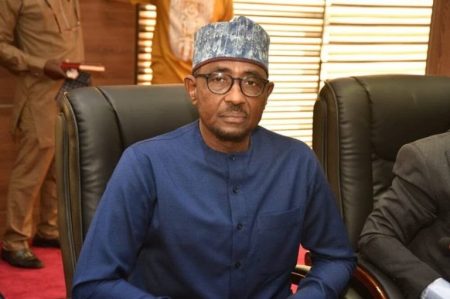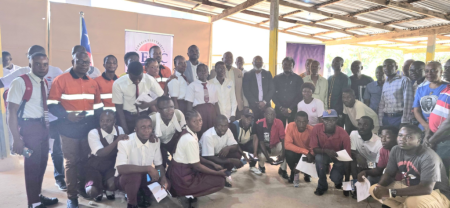Africa’s escalating debt burden, reaching a staggering $1.152 trillion by the end of 2023, poses a significant threat to the continent’s economic stability and sustainable development. This represents a near threefold increase from $400 billion in 2010, pushing the debt-to-GDP ratio to a concerning 67% compared to 31% a decade earlier. The African Development Bank (AfDB) 2025 Macroeconomic Performance and Outlook Report paints a stark picture of this growing crisis, highlighting the rising cost of debt servicing, persistent inflation, and the urgent need for comprehensive policy reforms to avert a potential economic downturn. The escalating debt servicing costs, more than doubling to $163 billion in 2024 from $61 billion in 2010, significantly constrain governments’ ability to invest in critical sectors such as healthcare, education, and infrastructure, hindering human capital development and economic progress. This financial strain further limits the implementation of crucial social programs and impedes the continent’s ability to achieve its development goals.
The rising debt burden stems from a confluence of factors, including increased borrowing to finance infrastructure projects, budget deficits exacerbated by economic shocks, and a challenging global financial landscape. The COVID-19 pandemic, coupled with the war in Ukraine, further exacerbated these challenges, disrupting global supply chains, increasing commodity prices, and impacting export revenues for many African nations. The subsequent reliance on external borrowing to bridge financing gaps has contributed significantly to the current debt crisis. Coupled with this is the volatility in global interest rates, which renders borrowing more expensive for African nations, thereby exacerbating their debt servicing obligations and further constraining their fiscal space.
The AfDB report emphasizes the urgent need for a multi-pronged approach to address this escalating debt crisis. Fiscal consolidation, coupled with enhanced revenue mobilization, is critical to create fiscal space and reduce reliance on external borrowing. This includes strengthening tax administration, broadening the tax base, and implementing expenditure rationalization measures. Furthermore, improving public financial management systems, enhancing transparency, and promoting good governance are essential for ensuring efficient and accountable use of public resources. These reforms are essential not only for managing the current debt burden but also for attracting foreign direct investment and promoting sustainable economic growth.
Structural reforms are equally crucial to enhance productivity, competitiveness, and economic diversification. Reducing reliance on commodity exports and fostering industrialization through value-added manufacturing and the development of technology sectors are essential to build more resilient economies. Investing in human capital through education, skills development, and healthcare is fundamental to unlocking the continent’s potential and driving long-term economic transformation. This requires creating an enabling environment for private sector development, fostering innovation, and promoting entrepreneurship to create jobs and stimulate economic growth.
Regional cooperation and integration are also paramount to address the debt challenge. Strengthening intra-African trade through initiatives like the African Continental Free Trade Area (AfCFTA) can boost economic activity, expand market access, and enhance economies of scale. This requires addressing non-tariff barriers, improving infrastructure connectivity, and harmonizing regulations to facilitate the free flow of goods, services, and capital across the continent. Increased regional trade can also diversify export markets, reduce reliance on external partners, and enhance economic resilience to external shocks.
Debt restructuring and innovative financing mechanisms are vital to provide immediate relief to heavily indebted countries and create fiscal space for development spending. Negotiating with creditors to extend repayment periods, reduce interest rates, or convert debt into grants can offer much-needed breathing room for struggling economies. Exploring innovative financing mechanisms such as debt-for-climate swaps, where debt is forgiven in exchange for investments in climate-friendly projects, can address both the debt crisis and the urgent need for climate action. Mobilizing domestic resources and attracting foreign direct investment are also crucial to complement these efforts and support sustainable development. The international community plays a crucial role in supporting these efforts through debt relief initiatives, technical assistance, and capacity building programs. Collaboration between governments, international financial institutions, and private sector actors is essential to address the complex challenges posed by the debt crisis and pave the way for sustainable and inclusive economic growth in Africa. A concerted and comprehensive approach is needed to ensure that Africa can overcome this hurdle and unleash its vast economic potential.














